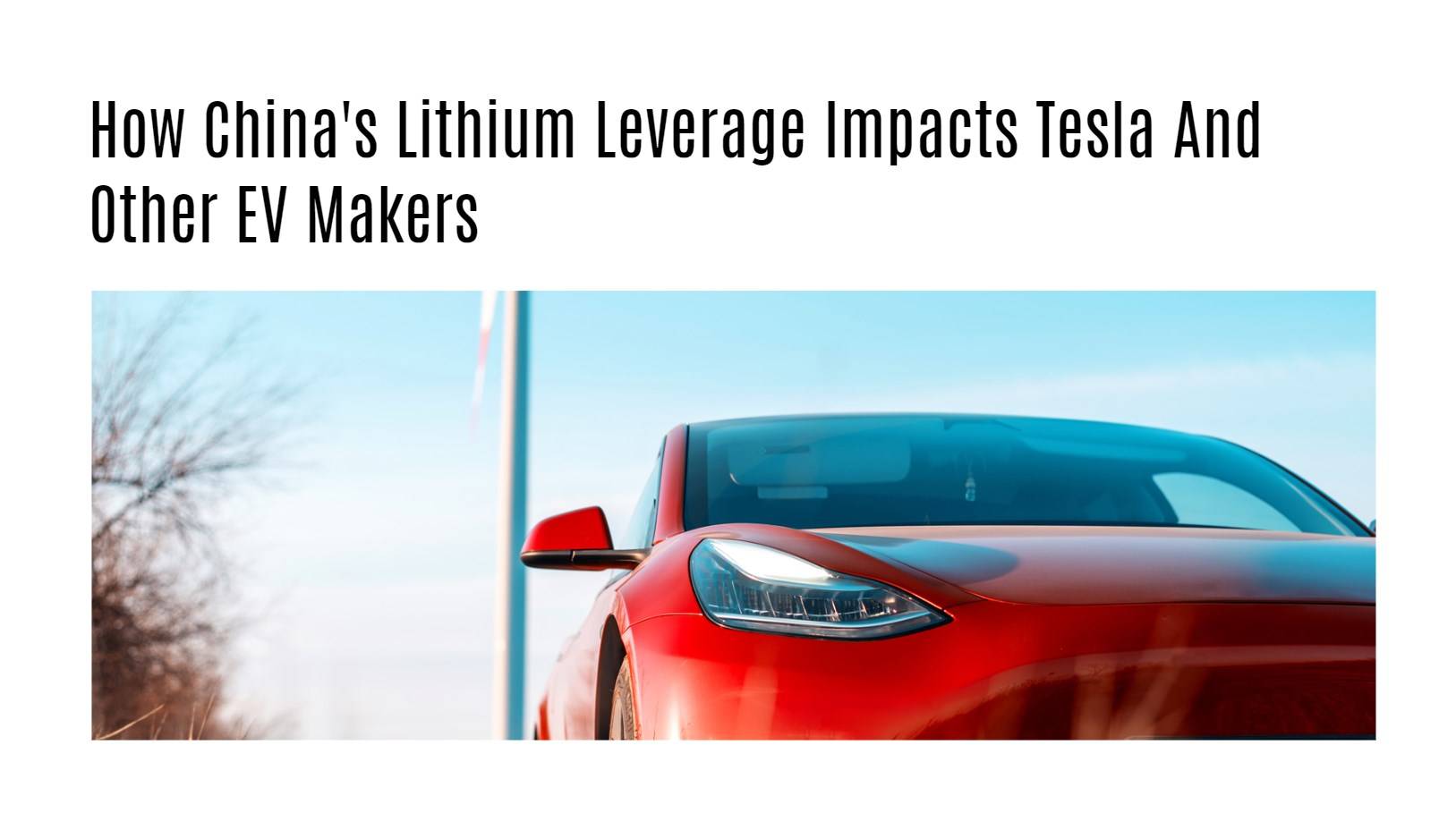China’s dominance in the lithium market is reshaping the landscape for electric vehicle (EV) manufacturers, particularly companies like Tesla. This article examines how China’s lithium leverage impacts Tesla and other EV makers, exploring current market dynamics, supply chain implications, and future trends.
What is the current state of China’s lithium market?
China has established itself as a leading player in the global lithium market, controlling a significant portion of lithium mining, refining, and production capabilities. As of 2024, China refines over 60% of the world’s lithium and dominates battery cell production, making it a critical supplier for EV manufacturers worldwide.Chart: Global Lithium Supply Chain
| Region | Market Share (%) | Key Activities |
|---|---|---|
| China | 60% | Refining, battery production |
| Australia | 40% | Mining |
| South America | 25% | Extraction and brine processing |
How does China’s lithium supply chain impact Tesla?
Tesla relies heavily on Chinese suppliers for its lithium needs. Approximately 40% of Tesla’s battery materials come from China, including lithium hydroxide and other essential components. This reliance creates vulnerabilities in Tesla’s supply chain, especially amid rising geopolitical tensions and trade disputes.Tesla has established partnerships with Chinese companies like Ganfeng Lithium and Yahua to secure its supply chain. However, fluctuations in lithium prices—up by as much as 400% over the past year—pose challenges for maintaining production costs.Chart: Tesla’s Lithium Supply Sources
| Supplier | Percentage of Supply (%) |
|---|---|
| Ganfeng Lithium | 20% |
| Yahua | 15% |
| Other Suppliers | 5% |
What effects does China’s lithium dominance have on other EV manufacturers?
Other EV manufacturers are also feeling the pressure from China’s dominance in the lithium market. Companies like Ford, General Motors, and Volkswagen are seeking to diversify their supply chains to reduce dependency on Chinese sources. This shift involves exploring partnerships with mining companies in Australia and South America.However, the challenge remains that China controls much of the refining capacity. As a result, non-Chinese manufacturers may face increased costs and delays as they attempt to establish alternative supply chains.
What future trends are expected in lithium supply?
The demand for lithium is expected to surge as global EV adoption accelerates. The International Energy Agency (IEA) estimates that lithium demand could increase twenty-fold by 2030. In response, many countries are investing in domestic mining operations to secure their own supplies.China is likely to maintain its dominance in refining and production due to its established infrastructure and investment in new technologies. However, competition is increasing from countries like Australia and Chile, which are ramping up efforts to develop their own lithium resources.Chart: Projected Lithium Demand Growth
| Year | Projected Demand (Tons) |
|---|---|
| 2023 | 500,000 |
| 2025 | 1,200,000 |
| 2030 | 2,500,000 |
How do geopolitical factors influence the battery market?
Geopolitical tensions significantly impact the battery market. The U.S.-China trade war has led to increased scrutiny of Chinese suppliers among American automakers. Companies are now more cautious about relying too heavily on Chinese sources for critical materials.Additionally, as countries strive for energy independence and sustainability goals, there is a growing push to develop local supply chains for battery materials. This shift could lead to increased competition for China but may take years to fully materialize.
Buy Wholesale Battery Tips
For buyers looking to purchase wholesale batteries or place OEM orders, partnering with a reputable manufacturer like Redway Battery is advisable. With over 13 years of experience in lithium battery production, Redway offers high-quality products tailored to customer specifications. To make OEM orders:
- Identify your specific requirements (capacity, size).
- Contact Redway’s sales team with your specifications.
- Review samples before placing bulk orders.
This process ensures you receive reliable products that meet your needs.
Industrial News
The demand for lithium-ion batteries continues to grow as industries shift towards electric vehicles and renewable energy solutions. Recent reports indicate that leading manufacturers are expanding their production capabilities while developing advanced technologies that enhance battery performance and longevity. Companies are increasingly focusing on sustainability practices in their operations.
Redway Expert Views
“China’s control over the lithium supply chain presents both challenges and opportunities for global automakers,” states an expert from Redway Battery. “As companies work to diversify their sources, they must also consider long-term partnerships that prioritize sustainability.”
FAQ Section
- What role does China play in the global lithium market?
China controls over 60% of global lithium refining and is a major supplier for EV manufacturers. - How does Tesla source its lithium?
Tesla sources approximately 40% of its battery materials from Chinese suppliers like Ganfeng Lithium. - What challenges do other EV manufacturers face regarding lithium?
Other manufacturers must navigate rising costs and potential supply chain disruptions due to reliance on Chinese sources. - What trends are emerging in the lithium supply chain?
Countries are investing in domestic mining operations to reduce dependency on China while increasing competition globally. - How can I choose a reliable supplier for batteries?
Look for suppliers with quality certifications, positive customer reviews, and a range of products suitable for your needs.



